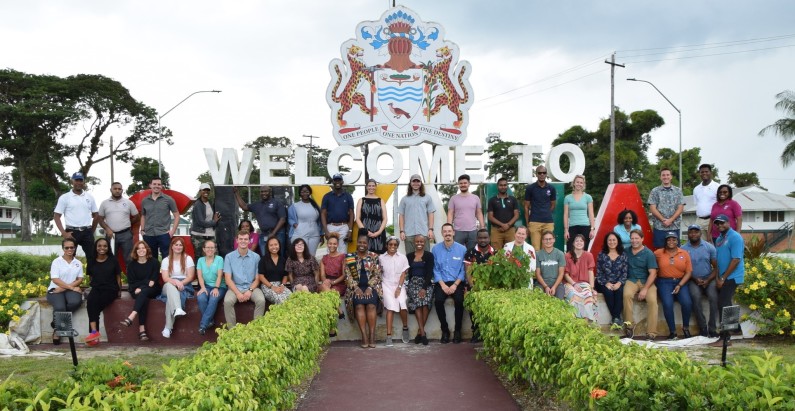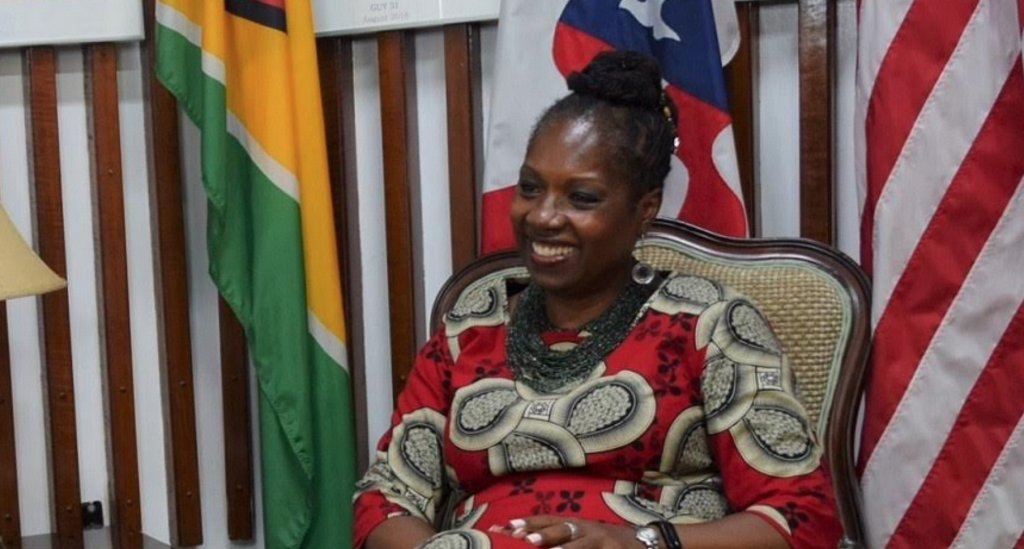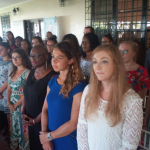
With a focus on Education, Health and the Environment, Peace Corps Volunteers have returned to Guyana after a two-year hiatus, which was due to the COVID-19 pandemic.
In an interview with News Source, the Country Director for Peace Corps Guyana, Dr. Nadine Rogers disclosed that the new batch of volunteers is made up of 23 persons who arrived on Thursday.
She said the volunteers will address areas of need that have been identified in partnership with the Government of Guyana.
The programmes will be rolled out in partnership with the Ministry of Education, the Ministry of Health and the Office of the President in primary and secondary schools along the country’s coast.
“We crafted a re-entry strategy, and we used these words to guide ourselves; we said it has to be careful; it has to be controlled and we recognized that based on the risks of COVID for now we are going to have to stay on the coast. Before we used to be in the hinterland, and we’ll go back there, we hope that we can go back there on our next batch but first we’ve got to deal with the coast,” the Country Director explained.
The volunteers will be placed at 23 schools in coastal areas where there is easy access to healthcare services.
The volunteers will commence teaching in January 2023, and it was explained that before entering the classrooms, they will spend 10 to 12 weeks learning about Guyana’s history, its culture, language and people. They will also undergo technical training.

Dr Rogers explained that when the pandemic hit Guyana in March 2020, the Peace Corps for the first time in its history, had no choice but to evacuate over 7,000 Volunteers globally.
At the time, there were 54 volunteers spread across nine of the ten Administrative Regions in Guyana.
“And really what drove the evacuation wasn’t so much the pandemic itself, it was the impact of the pandemic, it was the closing of borders. It meant that our volunteers didn’t have access to the medical hubs we used in case we have to medivac someone. So, it wasn’t just, okay, well this pandemic happened, and we all packed up and left, it was that the border closings meant that we wouldn’t be able to move people if they were sick,” Dr Rogers explained.
Dr Rogers noted that at the time the Peace Corps was working in collaboration with the Ministry of Education, the Ministry of Health and the Office of the President to foster Early Childhood Literacy and Environmental Practices through STEM – Science, Technology, Engineering and Mathematics – at Primary Schools, and Health and Family Life Education (HFLE) at the Secondary Schools within the nine regions.
With the COVID-19 pandemic subsiding, the Country Director said the collaborations in the specific programme areas will continue.
It was explained that under the Early Childhood Literacy Programme, the volunteers will continue to work in classrooms helping to develop the reading skills of children. As was done pre-pandemic, they will also help children to understand science in a more effective way and assist in the nurturing of environmental stewardship from within communities.
Under the Health Programme, the volunteers will help to build the capacity of teachers to deliver the Health and Family Life Education (HFLE) curriculum, and offer much needed support to health workers in the delivery of youth-friendly services. Once per week, they will also work at health clinics.
Reflecting on the past two years, Dr Rogers said in the absence of volunteers, the local Guyanese staff at Peace Corps partnered with the Ministry of Health in the area of Behavioural Change Communications to address myths surrounding COVID-19 and its vaccines.
Using clear messages about the virus, preventative measures and importance of vaccination to supress the spread of the virus, the Peace Corps launched its ‘Get the Facts! Get the Vax!’ campaign.
“We had some targeted advertising that pushed our videos out into those areas where there were the lowest levels of vaccination. We were using data to drive our decisions and we were able to see how many people viewed things and there was high viewership,” she explained.
The Peace Corps has been in Guyana since 1995.
However, it first started operations in 1966 up until 1971 before recommencing in 1995. The next batch of volunteers is scheduled to arrive in Guyana in early 2023.

















You must be logged in to post a comment Login